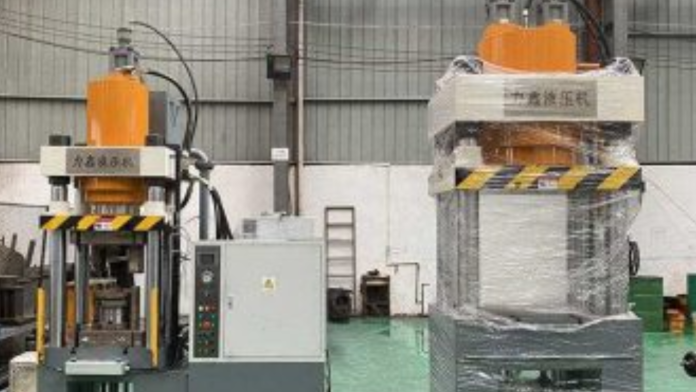Custom forging is a cornerstone of precision and strength in the evolving landscape of manufacturing. Custom forging is a sophisticated process that caters to varied sectors with unique specifications. It is based on the age-old craft of shaping metals by force and heat.
This artisanal technique entails the painstaking manipulation of metals to produce components with outstanding durability and toughness. Custom forging emerges as the best production choice as industries require specialized solutions, allowing for bespoke designs and precision engineering.
Custom forging’s versatility, from aerospace components to automotive parts, not only meets but exceeds demanding quality criteria. The custom forging reflects a blend of tradition and innovation, where time-tested processes coexist with cutting-edge technologies. This first look at the world of custom forging reveals a domain where craftsmanship meets modernity, giving personalized solutions that stand the test of time.
Environmental Sustainability in Custom Forging
Environmental sustainability is an important part of responsible production in today’s industrial world. Custom forging, a process used in many sectors, has evolved to incorporate eco-friendly practices to reduce environmental impact. This article digs into the tactics used by forging parts manufacturers to maintain environmental sustainability, emphasizing the need for responsible production practices.
Material Selection: A Foundation for Sustainability
The path to sustainability in custom forging begins with careful material selection. Forging producers are progressively choosing materials with a lesser environmental impact. This entails doing a life cycle study of materials, which includes evaluating issues such as extraction, processing, and end-of-life disposal. Choosing recyclable or recycled materials contributes greatly to lowering the industry’s environmental effects.
Energy-Efficient Forging Processes
The forging process has traditionally required large amounts of energy, but modern forging factories are implementing energy-efficient technologies. When compared to traditional ways, using innovative heating techniques such as induction heating saves energy; furthermore, optimizing forging process parameters like temperature and cycle periods reduces energy loss and improves overall efficiency.
Closed-Loop Systems for Water Conservation
Water is a critical resource in the forging business, largely utilized for cooling and lubricating. By recirculating and purifying water within the facility, manufacturers can dramatically cut water consumption. This method not only saves water but also reduces the environmental impact of wastewater discharge.
Initiatives to Reduce and Recycle Waste
Addressing waste generated during the forging process is an important part of sustainable manufacturing. Manufacturers are implementing comprehensive waste reduction plans, emphasizing recycling and reuse of materials wherever possible. Scraps and offcuts from the forging process are frequently collected and repurposed, contributing to a circular economy and lowering raw material consumption.
Green Supply Chain Practices
Sustainability encompasses the entire supply chain, not just the industrial facility. Forging manufacturers are partnering with environmentally friendly suppliers. This includes evaluating suppliers’ environmental credentials, shipping methods, and packaging materials for compliance with sustainable ideals. Green supply chain techniques contribute to a comprehensive approach to environmental stewardship.
Research and Development for Sustainable Solutions
Innovation is critical to promoting sustainability in custom forging. Manufacturers are investing in R&D to identify and apply innovative technologies that minimize environmental effects even more. Exploring alternative materials, refining forging techniques, and producing new alloys with improved sustainability profiles are all part of this.
Certifications and Compliance with Environmental Standards
Manufacturers to acquire certifications and comply with set environmental standards to demonstrate their commitment to environmental sustainability. Environmental management system certifications, such as ISO 14001, provide a foundation for continual improvement in environmental performance. Compliance with these criteria demonstrates a company’s commitment to responsible manufacturing.
Employee Education and Engagement
Developing a sustainable culture throughout the workforce is critical to the success of environmental projects. Employee education programs are being invested in by custom forging manufacturers to promote knowledge about the necessity of sustainable practices. Employee involvement in the company’s sustainability goals develops a shared commitment to minimizing environmental effects.
Conclusion
The customs forging sector is undergoing a sea change towards environmental sustainability. Forging manufacturers demonstrate their commitment to responsible manufacturing by using eco-friendly materials, energy-efficient methods, and waste reduction initiatives. As the industry evolves, including sustainable techniques not only decreases environmental effects but also presents custom forging as a responsible and forward-thinking contributor to global manufacturing processes.









